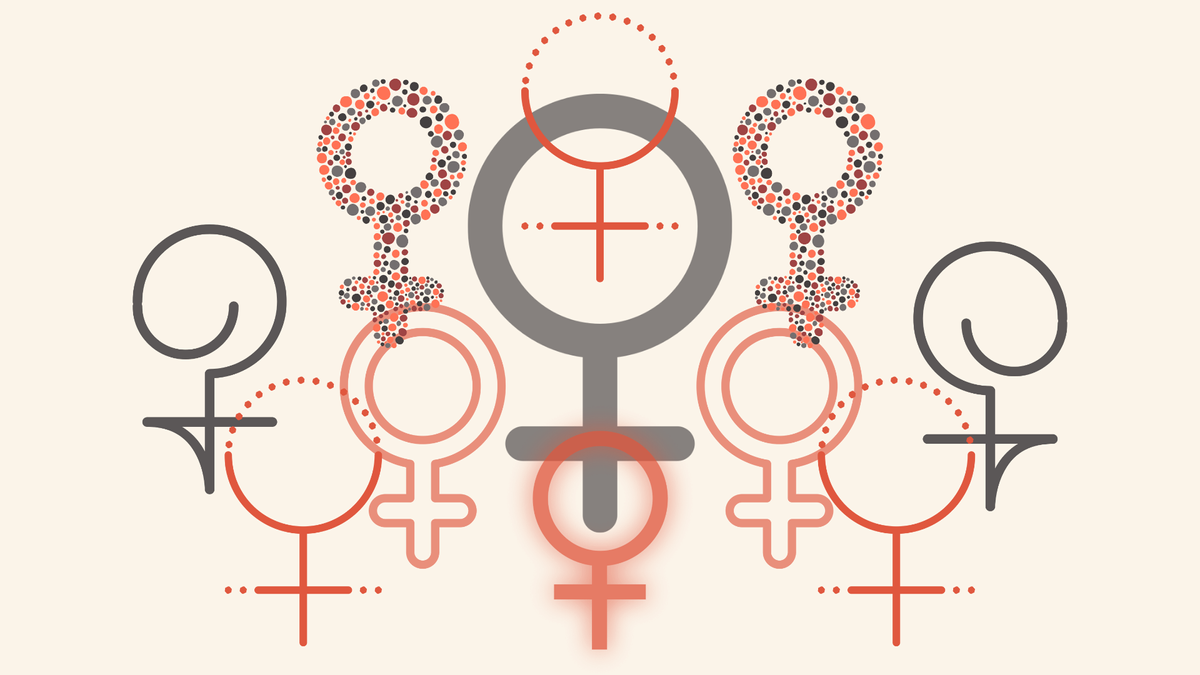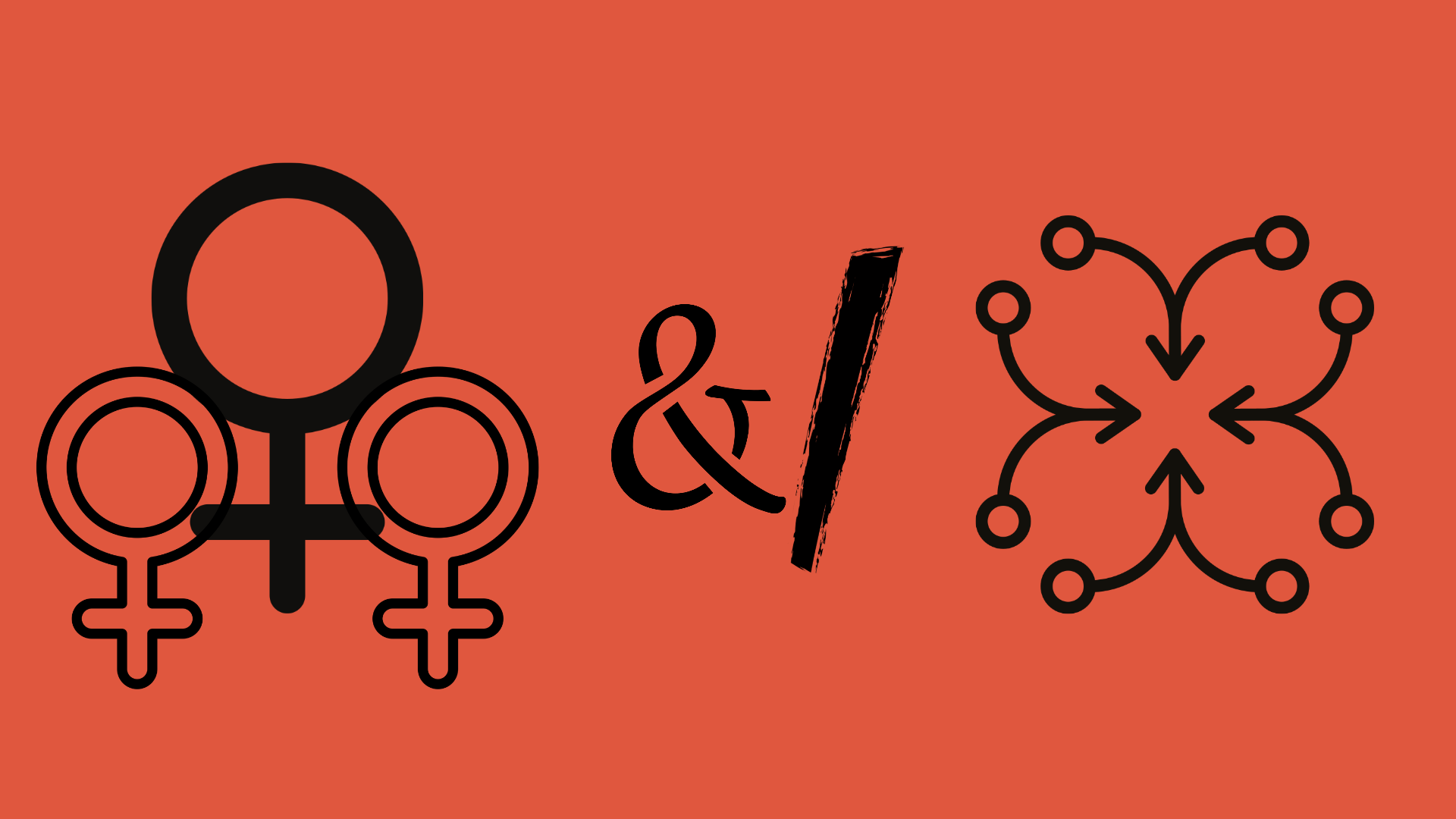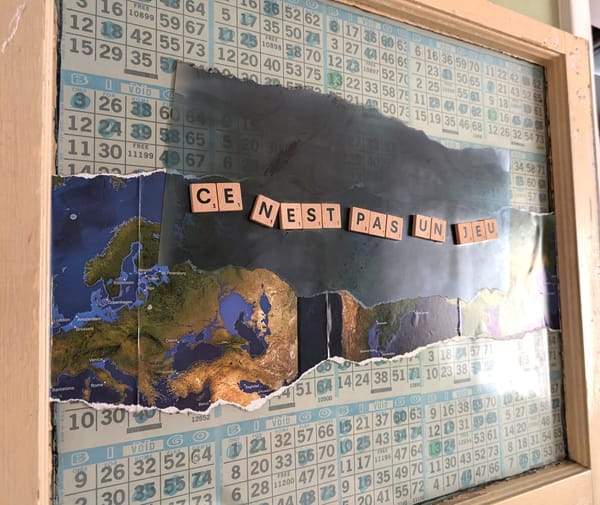Sisterhood / Coalition 4 |by Esmée Streachailt
Temporary, Focused, & How the Secret Far Right Cabals Are Doing It

Coalition is familiar to sisters who live in parliamentarian forms of government. There's multiple parties, some of their interests-goals overlap, they cooperate while building more support among voters for their other interests. Sometimes they form walls against gains by dangerous/powerful parties that want to undo policies or social conditions.
Two-party systems, as USians are painfully aware, easily fall into partisan loyalty, even hardened identities (which is when the violence usually kicks in — funsies!).

Solidarity is only created by acting on the 5 elements of freedom and protecting them for each other. This creates the trust that builds strong coalition, and strong coalition can preserve a fundamental political system like our modern democracies & it can move those male biased systems rooted in patriarchy toward the worlds of care and mutual respect and universal thriving that feminists have long envisioned.
I want to think at you about the important differences between Sisterhood and Coalition, how I see them as kinds of work rather than states of being. I think they are vital to making the matriarchy, or whatever you want to call the feminist overcoming of patriarchy, but feminists have stumbled over them more than once in our long history.
I'm suspicious of nouns, of states, of sameness, of stuckness, of the ideal, of the identity (same in ideal), and certainty. The noun is property, best understood in permanence, it can be owned and increased. It's how patriarchy thinks of women: as things, as nouns, as property, as resources. I think that over time feminism has made nouns of things that would serve us better as verbs. In this way, you could say that I'm putting and emphasis on Snyder's mobility as a foundational to our world building.
Verbs, processes, flows, becoming, cycles, unfolding, uncertainty, impermanence, these cannot be owned, only experienced and enacted. The kenning, rather than the Knowledge. The sheet music can be owned, but the sound not really. The dancer can be contracted to a company, but the dance itself can only be performed and observed. You feel me here?
So I want to look at Sisterhood and Coalition as processes, as relations, and not as states or contracts or territories. Because, the way I understand intuitive power is a matter of feeling energies of things/actions/ideas/flows and shaping them while responding with them in the most beneficial and cooperative way one can. When I do that, I see this:

Women, especially in movement, often feel betrayed when we don't agree perfectly, when we don't want exactly the same things, when we have different needs. We put a lot of pressure on sisterhood. I think we've turned this into an enmeshment, a drive toward sameness, toward identity, that only serves to explode under the pressure. I think we need to shift the energy here, reduce the amplitude a little.
We fall into this trap of making sisterhood level demands on women whose experience, whose particular oppression, even whose choice of political allies might remove them from us somehow. This is where the &/ comes in because this is where everything gets dicey and fine grained. I think we demand too much sameness rather than looking at the power in our differences.
What I'm beginning to describe is coalition. Coalitions are not about sameness, they are very much about difference: people with different experiences, different goals, different values, even different world views – work on an issue where they share concern, where they agree, on that issue.
Now. Rather famously, there are such cooperative arrangements between some women's organizations, and some single issue women, and organizations that do not have women's interests broadly at heart. Those are also coalitions. I'm not here for coalition's sake. I'm not here to reproduce the errors and failures that have come before this moment. We cannot enter into coalition for any convenience, and certainly not in ways where money or support can create power imbalance. That situation tips into cooptation almost the way water runs downhill. It's the path of least resistance.
Should any one issue then become everyone's one and only focus, their only work, to the negligence of every other oppression women suffer? No. But creatively finding the ways and methods through which different women can cooperate more effectively feels very urgent to me. And it feels urgent to be sure those women are all broadly pulling in similar directions. Few of us have JK Rowling or Melinda Gates level resources to share through foundations. But, we have some resources, and and we have some techniques. Cross-platforming, community sponsorships, mutual education sessions, doing even informal research. To be sure, feminists are talking to each other in public across organizations, what I'm suggesting is that those cross-overs deepen into shared action. Designing real working agreements among organizations that define how we will build a care economy among each other — that seems like the way.
And then the commitment has to be there. Women have broken faith across differences before, often, sometimes spectacularly. Feminists can't do that anymore. Our issue based coalitions should be very carefully considered, discussed, and agreed to. And then don't let all the shit work fall to the most marginalized women. And don't assume a familiarity that a professional relationship does not support. And have the same women in front all the time. And strategize to win. Not to stay in the work forever. To win on that issue. Be inseparable on that issue, be indomitable together.
I say this because at the moment men have us beat at this kind of alchemy. Geert Wilders and Steve Bannon don't see the world the same way. They don't want quite the same things. They're both anti-immigrant nationalists, but their views of which nations should be in control differ. But they spent years talking at each other's and at the same conferences. They are very, very different kinds of men from very different movements, different cultures. But they do share a few goals, and they cooperate there. I'm not suggesting that we drop all our boundaries and surrender all our commitments for the sake of cooperation. What I am suggesting is that an alliance like that between Trump and Musk only makes sense if they both want to dismantle the state apparatus that might limit the very different actions they want to take. They're not friends. They're not brothers, not in a bromance. They've formed a (possibly fragile?) coalition. MAGA and Tesla should not be in the same room, but they are. That's not a mistake. It works.
One more post left.
In it, I give a primer on coalition-ing. And a warning about the difference between coalition and cooptation. Because... no thank you.
Maybe this post moved you? Would you like to dedicate it in the name of an ancestor, sister, sister-friend, lover, daughter? Use Eopsin's Ward to have your dedication added here.
Add your voice to this Gorgon chorous? Visit Contribute.




